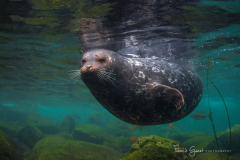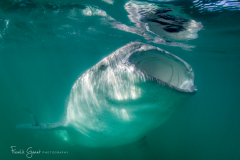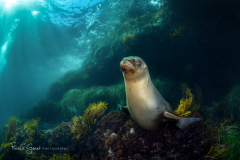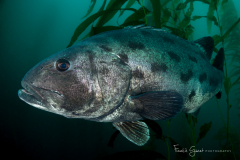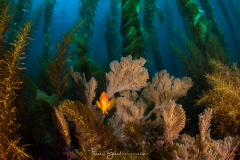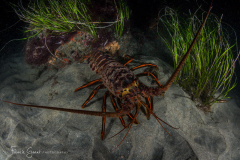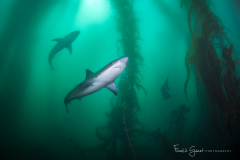In this ongoing series, we’ll chat with prominent and up-and-coming underwater photographers. Today we highlight Frankie Grant.
Tell us a little about yourself.
The start of an eventful career usually begins at the bottom, and for me it was at the bottom of a quarry called Fantasy Lake, a few miles from my parent’s house in Raleigh, North Carolina. Diving hooked me after 30 minutes or so of floating around weightless with only slight brain freeze. That was 10 years ago as a sophomore in college.
Working today as a PADI IDC Staff Instructor, it has been my pleasure to introduce hundreds of new divers to the underwater world. What began as a tingly brain freeze in a rock quarry has grown into a career spanning the last eight years of my life.
Three countries later, I am now based in San Diego, California. I currently lead local dive charters, as well as quarterly wildlife photography and diving expeditions to Baja California. On these trips I seek out encounters with some of the biggest animals on our planet. I focus primarily on wide-angle photography, as most of the animals I prefer to photograph are big.
How long have you been an underwater photographer?
One and a half years.
What got you interested in underwater photography?
After eight years of diving in varied locations, I have witnessed awe-inspiring scenes, such as hundreds of sharks schooling together and coral-spawning events; and tragic scenes, such as massive fish die-offs and extensive reef damage after a natural disaster. It is up to scuba divers to share these experiences and images with the rest of the world so that our most valuable resource does not go unnoticed or undervalued.
What’s your favorite style of underwater photography?
I really like shooting wide-angle portraits, as the challenge of capturing the emotion and behavior of an animal keep me constantly improving my technique.
Any favorite subjects?
I enjoy the playfulness of California sea lions, but equally enjoy the elusiveness and difficulty of photographing schooling tope sharks. I think that each creature poses its own challenges —usually the most difficult subjects to capture are the most rewarding.
Any favorite destinations?
The wrecks of North Carolina, Revillagigedo Islands, Los Islotes in Baja, Utila’s north side, and Grand Cayman all hold allure for me.
What’s your underwater setup?
I use a Canon 7D Mark II inside a Sea & Sea Housing with YS-D2 strobes. I sometimes use a tripod for stable seascape shots.
Do you have any tips you can share with new underwater photographers?
- Learn to use your camera outside the housing.
- Use custom modes to preset a good starting point for the type of underwater imaging you’re working on.
- Proper O-ring care goes a long way.
- Test-fire your camera and strobes after you set up your gear, every time.
- To practice underwater wide-angle lighting, start with fixed or sedentary subjects to allow time for reconfiguration.
Find more by Frankie Grant at his website.


